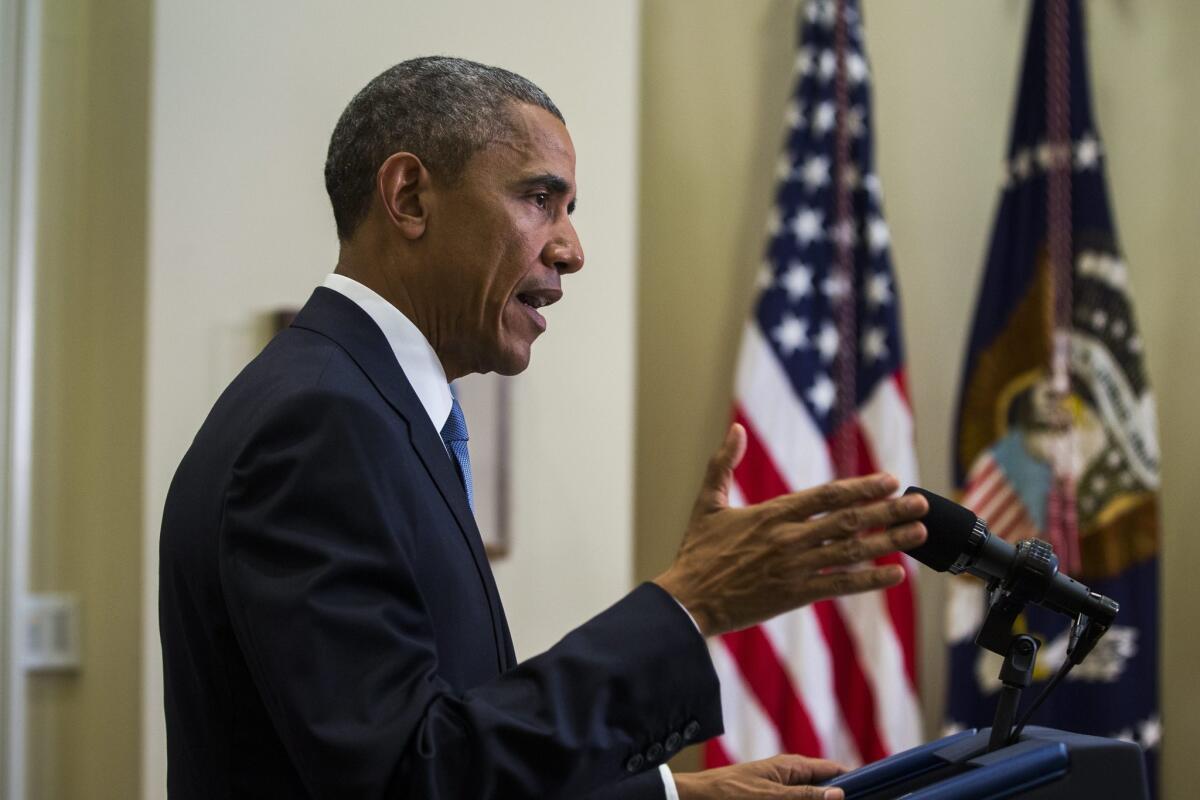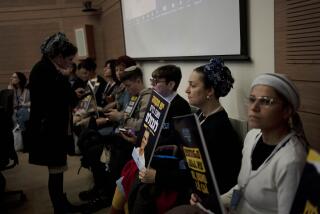Editorial: Where the new U.S. policy on hostages goes wrong

President Obama speaks about changes to his administration’s hostage policy in the Roosevelt Room of the White House on June 24.
In announcing a new program to coordinate efforts to recover Americans held by foreign terrorists, President Obama on Wednesday assured their families that “we will stand by you” and share information. He also promised that families who pay ransom to hostage-takers wouldn’t be prosecuted by the government under laws against providing material support for terrorism.
Those aspects of the new policy are laudable. More problematic is Obama’s promise that the government would make it easier for families to communicate (and by implication negotiate) with hostage-takers. That part of the policy is in tension with his reiteration of the long-standing — though inconsistently applied — U.S. policy of refusing to make concessions to terrorists. If the government makes it easier for families to pay ransom, that inevitably will make the taking of hostages more attractive.
We share the president’s sympathy for the families who believed their government was indifferent or unhelpful when they tried to win the release of their loved ones. Few among us, faced with the reality of a son or daughter taken prisoner and facing execution, wouldn’t move heaven and earth to obtain their release — and we would resent obstacles placed in our way by our own government. It’s impossible not to be moved, for example, by the plight of the family of James Foley, the U.S. journalist beheaded by Islamic State last summer. The idea of prosecuting families like the Foleys is repugnant.
But refraining from prosecution is different from creating conditions in which families will be encouraged to explore the possibility of paying ransom.
The White House said that, under its new policy, the government “may assist private efforts to communicate with hostage-takers to secure the safe recovery of a hostage.” That sounds like an invitation to start bargaining. And it can’t be reconciled with the rationale Obama offered for the refusal of the government itself to make payments: that it “risks endangering more Americans and funding the very terrorism that we’re trying to stop.” By one estimate, Islamic State raised $20 million in ransom for hostages in 2014.
We support several aspects of the policy, including the creation of an interagency “Hostage Recovery Fusion Cell” to coordinate recovery efforts and more engagement with families. But taken as a whole, the new policy will make it easier for families to act on their own to purchase their loved ones’ freedom.
Painful as its consequences may be, the government’s long-standing no-ransom policy still makes sense. Obama should not undermine it in the name of solidarity with hostages and their families.
Follow the Opinion section on Twitter @latimesopinion and Facebook
More to Read
Sign up for Essential California
The most important California stories and recommendations in your inbox every morning.
You may occasionally receive promotional content from the Los Angeles Times.










